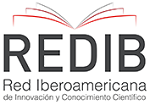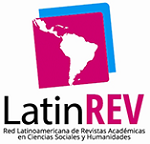Teaching, educational practice and curricular changes. A complex and challenging everything
DOI:
https://doi.org/10.15649/2346030X.2716Keywords:
teaching, practice, education, curriculumAbstract
The changes in the education of organizational, epistemological, curricular, didactic and pedagogical character, propose for the teacher to intervene, participate consciously and critically in the integral formation of the students. Innovations challenge the modification of routines and traditional teaching, learning and evaluation models. To develop the research from reflection, it was proposed to analyze how the teacher, the educational practice and the curricular changes can work together to respond proactively to the complexity and challenges of contemporary education, through a documentary study. This led to recognition of the importance of professional updating, forecasting, execution of actions and motivating processes, generators of meaningful learning and construction of knowledge, accompanied by the renewal of curricular designs, in correspondence with the competencies for both teachers and students. A competent teacher, that is, a teacher of free citizens, with values, creative and prepared to exercise the risk of being forgers of their history, is historically recognized.
References
J.E. Calvache-López, “El papel del educador en el pensamiento de Paulo Freire”, REVISTA ESTUDIOS LATINOAMERICANOS, 12- 13, 17-26, 2003.
R. Chávez-Alba, “Herramientas necesarias para una enseñanza centrada en el aprendizaje”. Revista Iberoamericana de Ciencias, 1(6), 91- 94, 2014.
G.M. Domínguez, R.A. Medina y R.C. Sánchez, “La Innovación en el aula: referente para el diseño y desarrollo curricular”, Revista Perspectiva Educacional, 50 (1), 61-862011.
C. B. García, J. Loredo y G. Carranza, “Análisis de la práctica educativa de los docentes: pensamiento, interacción y reflexión”, Revista Electrónica de Investigación Educativa, Especial, 2008. [En línea]. Disponible: http://redie.uabc.mx/NumEsp1/contenido-garcialoredocarranza.html [Consultado: 2018, junio 18].
R.J.A García, “Modelo educativo basado en competencias: importancia y necesidad”, Revista Electrónica Actualidades Investigativas en Educación, 11 (3), 1-24, 2011.
L. Gómez, “Un espacio para la investigación documental”, Revista Vanguardia Psicológica, 1, 1 (2), 226-2332010.
N. Murrillo, “La gestión escolar y el desarrollo curricular: implicancias, desafíos y propuestas en el escenario de las políticas educativas”, [En línea]. Disponible: http://web.usbmed.edu.co/usbmed/CURSO_DOCENTE/PORTAFOLIO6/G6CAUCASIA_NANCY_MURILLO_INFORMES_CURRICULO.pdf. [Consulta: 2018, junio 6]
Ch.C. Peña, “Perfil de un Docente Eficiente en el Siglo XXI”, Dialéctica, 12, (2), 35-55, 2016.
V.J.M. Torres, “Siglo XXI: el reto de ser docente”, 2003. [En línea]. Disponible: http://itzel.lag.uia.mx/publico/publicaciones/acequias/acequias3
[En línea]. Disponible: 9/a39sigloxxi.pdf. [Consulta: 2018, junio 6]
A. Medina y S. Gento, “Liderazgo pedagógico en los centros educativos”, Madrid: UNED. 1995.
Published
How to Cite
Issue
Section
Altmetrics
Downloads
License
The journal offers open access under a Creative Commons Attibution License

This work is under license Creative Commons Attribution (CC BY 4.0).












